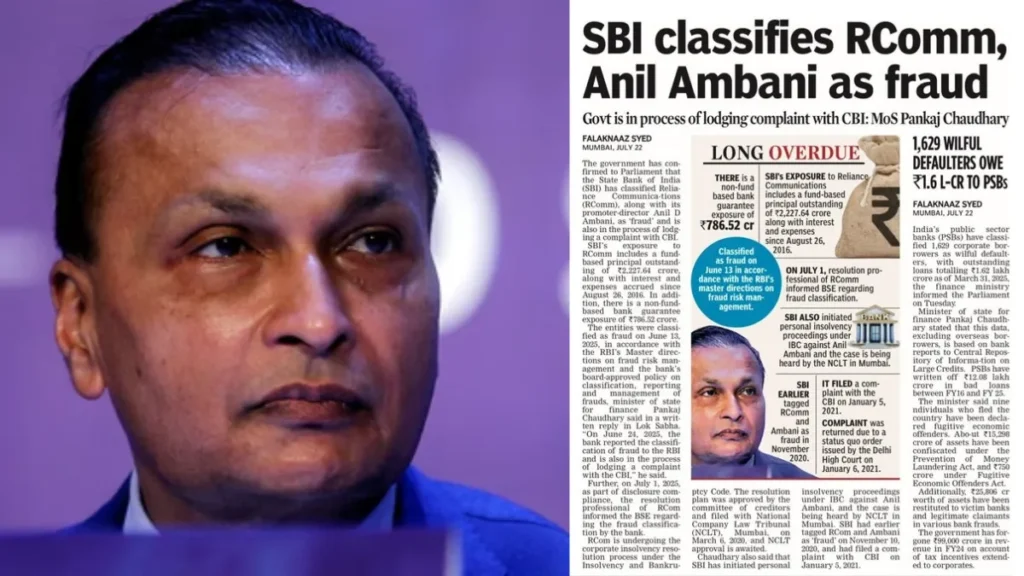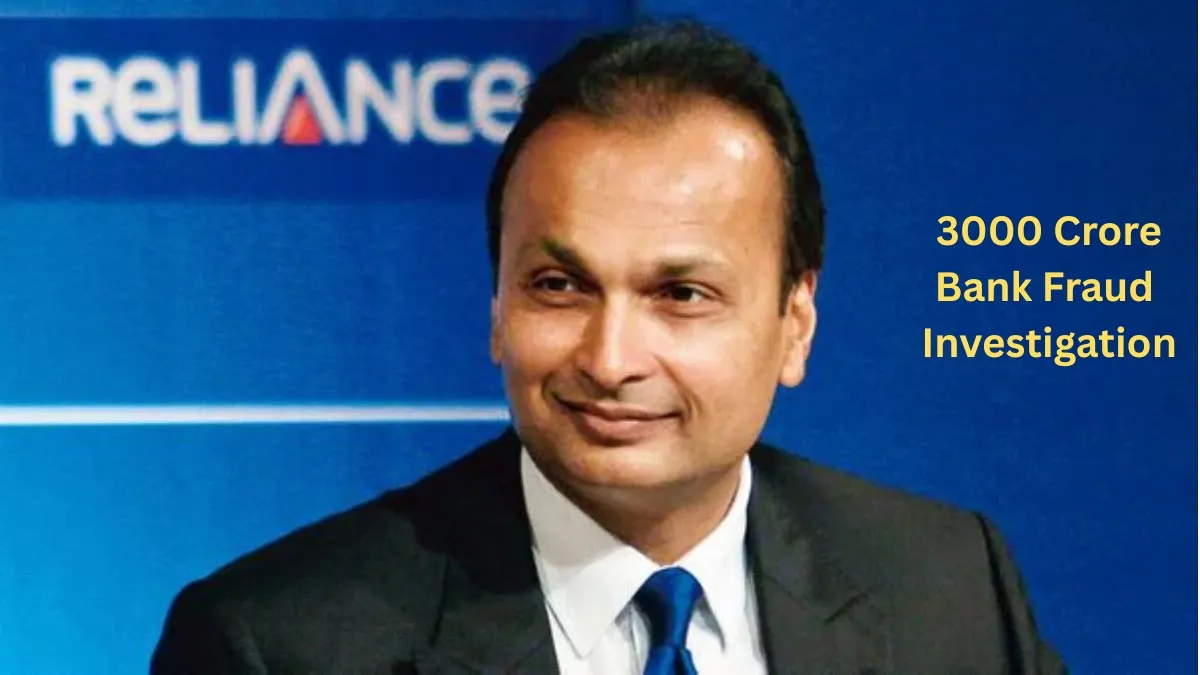According Big Media Houses: On July 24, 2025, the Enforcement Directorate (ED) launched extensive raids across 35 locations in Mumbai and Delhi, targeting companies linked to Anil Ambani’s Reliance Anil Dhirubhai Ambani Group (ADAG). The raids are part of a money laundering investigation tied to an alleged 3000 crore bank fraud involving loans from Yes Bank to Reliance Group firms. This high-profile case has sparked widespread attention, raising questions about financial mismanagement and corporate governance. Here’s a clear breakdown of the situation, based on reports from trusted sources.
What Sparked the 3000 Crore Bank Fraud Investigation?
The ED’s probe centers on loans worth approximately ₹3,000 crore disbursed by Yes Bank to Reliance Home Finance Ltd (RHFL) and Reliance Commercial Finance Ltd (RCFL) between 2017 and 2019. The investigation stems from two First Information Reports (FIRs) filed by the Central Bureau of Investigation (CBI) in September 2022. These FIRs allege serious financial irregularities, including the diversion of public money through a 3000 crore bank fraud. The ED suspects that these loans were misused, with funds siphoned off to shell companies and group entities, violating lending terms.
According to officials, the probe revealed a “well-planned scheme” to cheat banks, shareholders, and investors. The ED is also examining claims of bribery involving Yes Bank’s former chairman, Rana Kapoor. Allegedly, Yes Bank promoters received payments in their private concerns just before approving the loans, pointing to a possible quid pro quo arrangement in the 3000 crore bank fraud case.
Big Media House NDTV is also covers the news and shared it on X handle
Anil Ambani Raided: ED Probes Over 35 Premises, 50 Companies, 25 People
NDTV’s @radhika1705 joins @divyawadhwa with more details pic.twitter.com/xkMfyuEX8A
— NDTV (@ndtv) July 24, 2025
Also Read: Thailand-Cambodia Clash Intensifies with Bombings and Deaths
Key Findings in the Money Laundering Probe
The investigation uncovered several red flags that suggest systemic financial misconduct:
-
Loans to Weak Entities: Funds were disbursed to companies with poor financial health and inadequate documentation.
-
Backdated Approvals: Credit Approval Memorandums (CAMs) were backdated, bypassing Yes Bank’s credit policies.
-
Shell Companies: Loans were routed to shell firms with common directors and addresses, a tactic often used to obscure fund trails.
-
Evergreening of Loans: New loans were issued to repay existing ones, masking financial distress.
-
Misrepresentation: Financial data was manipulated to secure approvals.
These findings indicate a pattern of mismanagement tied to the 3000 crore bank fraud, with the ED probing whether senior Yes Bank officials were complicit in exchange for personal benefits.
Also Read: Saiyaara Movie Review & Box Office Success

Regulatory Inputs and Market Impact
The ED’s investigation is supported by inputs from multiple regulatory bodies, including the Securities and Exchange Board of India (SEBI), National Housing Bank (NHB), National Financial Reporting Authority (NFRA), and Bank of Baroda. SEBI’s report highlighted a sharp rise in RHFL’s corporate loan portfolio, which surged from ₹3,742.60 crore in FY 2017–18 to ₹8,670.80 crore in FY 2018–19, raising suspicions of financial irregularities.
The raids triggered a market reaction, with shares of Reliance Infrastructure and Reliance Power dropping by up to 5% on July 24, 2025, as reported by Reuters. This reflects investor concerns about the fallout from the 3000 crore bank fraud allegations.
Reliance Group’s Response to the Allegations
Reliance Group issued a statement clarifying that the allegations relate to transactions over eight years old, involving Yes Bank and RHFL. The company claims that loans to Yes Bank promoters were “sanctioned on merit,” fully secured, and repaid with interest, leaving no outstanding dues. They also emphasized that all transactions complied with applicable laws and were approved by a credit committee of over 30 members.
The group noted that Reliance Communications (RCOM) and RHFL are no longer part of the Reliance Group. RCOM is under insolvency proceedings, and RHFL’s debt resolution was finalized per a Supreme Court judgment in March 2023. Allegations similar to those in the 3000 crore bank fraud case are under review at the Securities Appellate Tribunal (SAT), making the matter sub judice.
What’s Next for Anil Ambani and Reliance Group?
The ED’s raids mark a significant escalation in the scrutiny of Anil Ambani’s business empire. With over 50 companies and 25 individuals under investigation, the probe could have far-reaching consequences for the Reliance Group’s reputation and operations. The focus on money laundering, bribery, and loan fraud underscores the need for stronger corporate governance and transparency in India’s financial sector.
As the investigation unfolds, the public and investors await clarity on the full extent of the 3000 crore bank fraud and its impact on Anil Ambani’s legacy. For now, the case serves as a reminder of the importance of accountability in corporate dealings.

